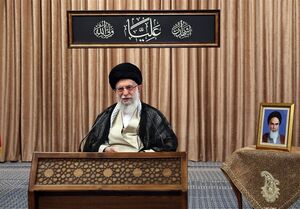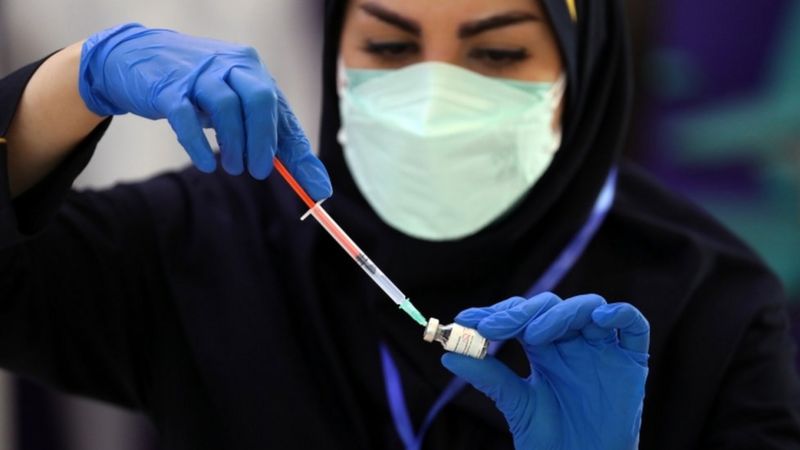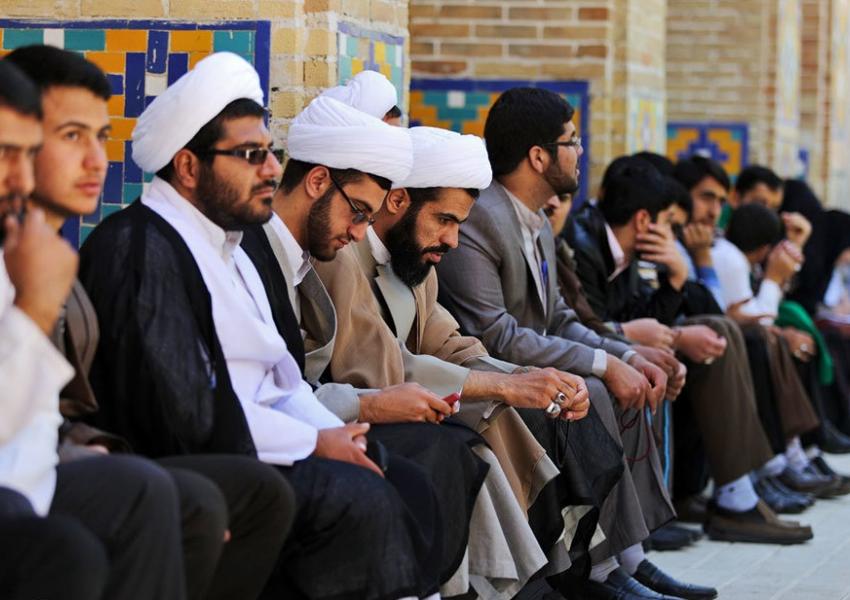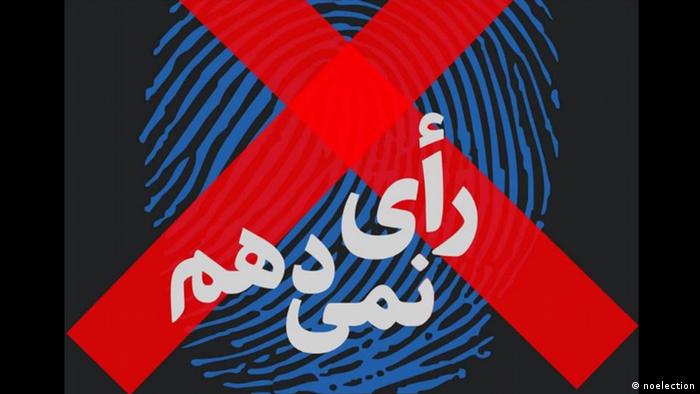
Consensus of “Principlists:” A Few Points
As we approach the presidential election in Iran, the editorial of Arman Mell, penned by “principlist” political activist Nasser Imani, explains how “principlists” can reach a consensus over a candidate to maximize their chances of winning the election.
There is no consensus among the “principlists” or the “reformists” over who to endorse for the upcoming presidential election. This is an issue that both trends are dealing with. The “reformist” parties have said that they will follow the consensus that will be reached, but it remains to be seen whether this will happen or not.
The “principlists” haven’t reached a consensus either; they are still waiting to see who will run for the presidency. Will the head of the judiciary Ebrahim Raisi and the Parliament speaker Mohammad Bagher Ghalibaf decide to run? Who will be running against them? Based on these circumstances, the “principlists” might reach a majority or even absolute consensus. Absolute consensus means all the “principlist” currents will agree over a candidate, while a majority consensus means most of these currents will reach an agreement over a candidate but some currents will reach a consensus over another candidate.
Raisi ought to remain in his significant position in the judiciary branch. He should continue what he has started there. But if he decides to run for the presidency, then the issue will be different. But if Raisi isn’t nominated for the presidency, Ghalibaf will run.
Naturally the consensus that will be shaped over Raisi will not be formed over Ghalibaf. In other words, instead of absolute consensus, we will be witnessing a majority consensus among the “principlists.”
The number of candidates has not been finalized as yet, as the Guardian Council will be vetting them. If, for example, 20 well-known figures from the different political currents want to run for the presidency, the council will approve of only four or five candidates.
Currently, the “reformists” have lost their social base, but it doesn’t mean that the “principlists” will definitely win the presidential election. If there are multiple candidates, this will make it more difficult to reach a consensus.
Necessity of Understanding Teachers’ Problems
On Teachers’ Day in Iran, May 2, the media and internet are awash with beautiful narratives celebrating the essential role of teachers in everybody’s life. The editorial of Tejarat stresses that what is usually ignored is how teachers have to cope with a lot of pressure to live their lives, given all the economic and social problems they have to deal with.
Teachers’ Day is an excuse to do whatever we can to celebrate teachers and the role and position they have in our lives. On this day, meaningful, celebratory articles will be seen everywhere on the internet. Those who have achieved great things because of their teachers’ efforts will pay tribute by recounting positive memories about them. And those who haven’t listened to their teachers celebrate them differently, admitting that their teachers did everything they could to help them.
In all these narratives, we are obsessed with ourselves. But what is not seen is the conditions of teachers’ lives. If once the teacher was angry in the classroom and couldn’t tolerate the students, we never asked ourselves the reason why.
We were never concerned that the teacher as the father of the family had got up very early in the morning to go and work as a taxi driver to provide for them. And when the school hours were over, he had to once again become a taxi driver to make some money. We were never concerned that the teacher as the mother of the family had to get up early to prepare breakfast for her family and then come to school to teach us.
Today, we have no understanding about teachers’ challenging lives. Given the rate of inflation and high prices, we have no idea how much pressure they have to cope with. We have never paid attention to how they are living their lives with their miserable salaries.
Society Demands Transparency
The editorial of Aftab Yazd stresses the fact that the Iranian establishment must share the facts and information with the Iranian people, as the lack of transparency is a threat to the country’s security and peace.
Iranian society needs transparency and accountability from the political authorities. The most important way to guarantee transparency is giving the correct news and information to people regarding all political and economic events and incidents, so that the citizens can have transparent access to the government’s information and policies.
So far, there has been no resolve or attempt to communicate with the Iranian people transparently and to help ensure national participation. An obvious case is the existing healthcare policy, as it is quite clear that there is no transparency with regard to coronavirus.
Today, political processes require government transparency. The lack of transparency from the establishment towards Iran’s young and educated society, as well as with the country’s strong intellectual trends, has most certainly created many problems.
Civil society has grown weak and people are not treated fairly. It is very shocking to them when certain facts are exposed – given the fact that in this age of the internet and the consequent information explosion, these facts will be eventually disclosed.
Officials might release information, and that will not create dangerous conditions in the country. But the lack of transparency and the lack of commitment to dialogue with people will be a serious threat to the country’s security and stability.
The emergence of different platforms and the internet have considerably changed the world. How information is given to society determines its health. The Iranian people are obviously upset by the lack of transparency and how the establishment is disseminating news and information and consider officials as untrustworthy who don’t tell the public what is actually going on.
The Iranian establishment must have become politically mature enough by now to realize that society must monitor power. Transparency and holding decision makers accountable is not a taboo. And this will give confidence to the people.
Today’s Economic Situation Is the Result of Tying Everything to the JCPOA
The editorial of Asr-e Iran, written by lawmaker Hossein Khosravi Asafzar, asserts that today’s deteriorating economic condition is because Hassan Rouhani’s government rushed to sign and implement the JCPOA with Europe and America.
President Rouhani has said that whoever misses the opportunity to lift US sanctions is “a traitor.” But it is the other way round as well: whoever misses the opportunity to neutralize US sanctions is a traitor too. According to Imam Ali, one of the signs of a government’s collapse is not learning from the lessons of the past.
Weren’t eight years enough for learning the lesson? Don’t we want to learn the lesson? Europe and America are not committed to their obligations. At certain junctures, they might sign an agreement, but if they see any weaknesses, they will impose sanctions again.
After the negotiations that were held by the government, we gave everything we had, and now it is not to the country’s advantage to beg the other parties to fulfill their obligations. The results of tying everything to the nuclear deal (JCPOA) are the critical rate of unemployment, inflation, and economic pressure on people.
Economic problems have put people under a lot of cultural and psychological pressure. And if the government doesn’t want these problems to be repeated, it should learn the lesson and not make hasty decisions. In the Parliament’s strategic bill for lifting sanctions, we gave a deadline to Europe and America, telling them that if they lift sanctions, we will return to our obligations.
Some said back then that John Kerry’s signature was a guarantee and rushed to implement the JCPOA. Foreign Minister Mohammad Javad Zarif was told in the Parliament that this English word means to “suspend” and not “rescind,” but he didn’t accept it.
So, we must not rush to sign and implement an agreement so that we don’t repeat past mistakes.

Khamenei Accuses FM Zarif of Repeating “Hostile Words of Enemies”

A week after a controversial interview with Iran’s foreign minister was leaked, stirring up considerable controversy in Iran and abroad, the Iranian supreme leader made a speech addressing it.
Ali Khamenei railed at Foreign Minister Mohammad Javad Zarif, saying “these words are the repetition of the hostile words of our enemies and America.” Khamenei also expressed his regret that foreign media had broadcasted Zarif’s statements.
In that interview, Zarif unprecedentedly criticized the IRGC’s dominance over Iran’s foreign policy, stating that Iran prioritized the military field over diplomacy. Zarif accused former Quds Force Commander Qassem Soleimani of damaging diplomacy.
In reaction to those statements, Khamenei defended the IRGC Quds Force and Soleimani’s performance by saying: “The Quds Force is the greatest effective factor in preventing a passive diplomacy in West Asia.” Khamenei pointed out that Americans have been extremely upset about Iran’s influence in the region for years, adding that they were also upset with Soleimani for the same reason and that is why they killed him.
“We should not say something which might mean that we are echoing their words, whether about the Quds Force or about Shahid Soleimani,” asserted Khamenei. He then asserted that foreign policy is not determined by the Foreign Ministry; the top authorities are responsible for it: “Of course, the Foreign Ministry participates in it but as the executor.”
Furthermore, Khamenei reacted to Zarif’s words about Soleimani conspiring with Russia to prevent the JCPOA from coming to fruition and driving Iran into the Syrian war at Russia’s direction. Khamenei noted that after the 1979 revolution, the West has had no dominance over Iran, therefore, it does not approve of Iran’s relations with China and Russia.
Meanwhile, Zarif asked for forgiveness from Qassem Soleimani’s family in a post on his Instagram page, saying “if I knew that even one sentence of my remarks was going to be publicized, I would not say it as I did in the past.” Zarif also mentioned that his statements in that interview were honest.
“Vaccine-gate” in Iran; Vaccines Imported Sold up to 12 Times More Expensive

While less than 1.5 percent of the Iranian population have been vaccinated so far, there are official and unofficial reports regarding corruption in importing and selling vaccines in the country.
According to the National Headquarters for Combating Coronavirus, the private sector can import vaccines approved by the Iranian Health Ministry. The government and other institutions have repeatedly underscored that the private sector can import vaccines using forex at the government price.
According to the spokesperson of the Iranian Food and Drug Organization, some companies that have imported vaccines have no connection to this field, and have submitted invoices that are sometimes 12 times more than the real price of the vaccines.
According to Kiyanoush Jahanpour, invoices for a vaccine actually worth $10 to $25 are submitted at the price of $70, or a vaccine that is $4 or $5 is sold to the government at $50; this is an example of “vaccine-gate” and is suspicious.
It has been reported that in addition to the false price of imported vaccines, there has been corruption and discrimination in the distribution of vaccines as well, including vaccinating some managers and officials out of turn.
In the meantime, spokesperson for National Headquarters for Combating Coronavirus Alireza Raisi announced with regard to importing vaccines by the private sector that if the brand of vaccine is American but is produced in another country, “we will authorize purchasing it.”
This is in contradiction to the Iranian supreme leader who had ordered not to import American or British vaccines. Raisi said in this regard that the vaccine brand is not important, “we just don’t buy it from America and Britain. You must know that AstraZeneca is a British brand, but we have purchased it from South Korea.”
So far, in Iran a little more than 1 million people have at least received one dose, and a little more than half a percent of the population has received two doses.
Education Ministry Hires 25,000 Seminary Students as Teachers to Islamize Schools

Iran’s Education Ministry has announced that it would employ 25,000 seminary students as teachers in order to “Islamize” schools. “This is a legal measure and in accordance with the ratifications of the Parliament and the Supreme Council of the Cultural Revolution,” said the ministry in a statement in reaction to a Shargh daily report in this regard.
The ministry noted that the Parliament had passed a law on hiring clergy and seminary students by the Education Ministry in 1996. Meanwhile, the headquarters of joint cooperation between the Education Ministry and seminaries supported the recent employment plan, stating that only 440 seminary students have been hired as teachers in the past year and this number is not high enough. The headquarters added that hiring male and female seminary students as teachers is a part of the “document of fundamental transformation of education.”
The headquarters also mentioned that the seminaries have been in charge of education in Iran for centuries and “currently the document of fundamental transformation of education is a revival of cognitive and religious values.”
A day before this announcement, however, the Iranian Teachers Trade Association issued a statement, protesting against the Education Ministry’s recent measure, as well as teachers’ low salaries and lack of insurance and job security. The statement also called for releasing the imprisoned teachers, including Esmaeil Abdi – former head of the Teachers Trade Association – who had been arrested several years ago in the wake of a nationwide teachers’ strike in Iran. To end suppressive confrontations against teachers was another demand included in this statement.
In recent years, Iranian teachers have held a number of nationwide assemblies and strikes to protest against violations of their union rights and inadequate livelihood.
“I Do Not Vote” Campaign Launched to Boycott 2021 Presidential Elections in Iran

Less than two months to Iran’s presidential elections, a number of civil and political activists have launched a campaign called “I do not vote” inviting people to join an “active” and “targeted” boycott of the elections in order to neutralize the attempts of the government to acquire its lost legitimacy through holding elections.
In a statement, signed by the executive headquarters of this campaign, the 2021 presidential election is called a “show election” which only allows those wholly devoted to serving the government to be elected. Therefore, this election is “far from the principles of free and fair elections” and its boycott is “in defense of Iranian citizens’ dignity and their right to vote.”
The statement also says boycotting the presidential election would be a “heavy defeat for those who guard and implement theocracy” in Iran.
“Saying no to the ballot boxes – which are only used as a decoration – means saying no to discrimination, oppression, pervasive poverty, institutionalized corruption and demeaning the elections to a mere cover for hiding the authoritarian nature of a government which is against its people.”
The activists launching this campaign believe that boycotting the elections is “a part of the transition to democracy and fair and free elections” in Iran.
Iran’s 13th presidential election is to be held on June 18.
